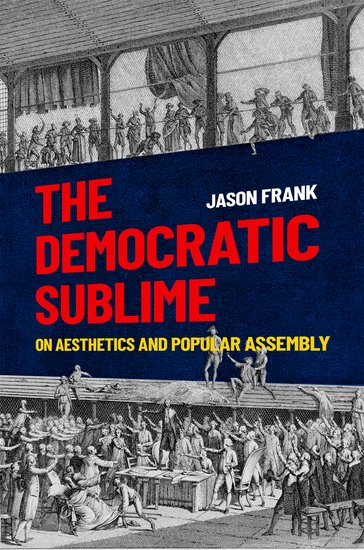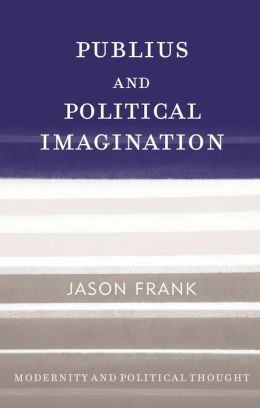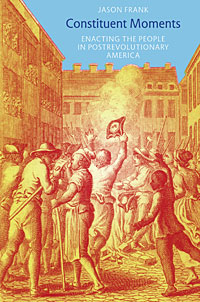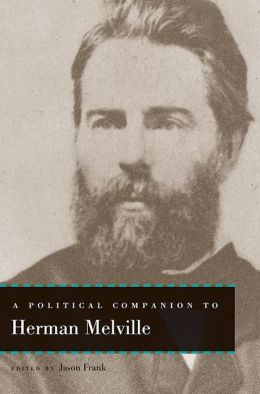The transition from royal to popular sovereignty during the age of democratic revolutions–from 1776 to 1848–entailed not only the reorganization of institutions of governance and norms of political legitimacy, but also a dramatic transformation in the iconography and symbolism of political power. The personal and external rule of the king, whose body was the physical locus of political authority, was replaced with the impersonal and immanent self-rule of the people, whose power could not be incontestably embodied. This posed representational difficulties that went beyond questions of institutionalization and law, extending into the aesthetic realm of visualization, composition, and form. How to make the people’s sovereign will tangible to popular judgment was, and is, a crucial problem of democratic political aesthetics.
The Democratic Sublime offers an interdisciplinary exploration of how the revolutionary proliferation of popular assemblies–crowds, demonstrations, gatherings of the “people out of doors”–came to be central to the political aesthetics of democracy during the age of democratic revolutions. Jason Frank argues that popular assemblies allowed the people to manifest as a collective actor capable of enacting dramatic political reforms and change. Moreover, Frank asserts that popular assemblies became privileged sites of democratic representation as they claimed to support the voice of the people while also signaling the material plenitude beyond any single representational claim. Popular assemblies continue to retain this power, in part, because they embody that which escapes representational capture: they disrupt the representational space of appearance and draw their power from the ineffability and resistant materiality of the people’s will. Engaging with a wide range of sources, from canonical political theorists (Rousseau, Burke, and Tocqueville) to the novels of Hugo, the visual culture of the barricades, and the memoirs of popular insurgents, The Democratic Sublime demonstrates how making the people’s sovereign will tangible to popular judgment became a central dilemma of modern democracy, and how it remains so today.
The Democratic Sublime is learned, lyrical, and profound. Speaking to and beyond the emergencies of our moment, Jason Frank excavates a buried appreciation of democracy as resting not mainly in norms or institutions but in the political body of the people. Sensitively probing thinkers ranging from Burke, Tocqueville, and Rousseau to Rancière, Lefort, and Wolin, this book recovers the sensuous beauty of the politics of popular assembly as an essential element of democracy’s value, and perhaps what keeps it alive against the odds.
—Wendy Brown, University of California, Berkeley
Democratic theorists like to think that they know ‘the people’ when they see them. But how do ‘the people’ make themselves visible? In this illuminating and brilliant book, Jason Frank convincingly argues that political theorists need a more aesthetic approach to analyze popular manifestations. Focusing on the age of democratic revolutions, Frank deftly studies the many appearances of the people in philosophical works and on rebellious streets.
—Dan Edelstein, author of On the Spirit of Rights
Democracy is a collective thing animated by seemingly irreconcilable lineages. While political science typically deals with institutions and procedures pretending to represent the will of the people, it has obscured democracy’s more decisive dimension: people recognizing their own embodied and collective presence as the foundation of political life. With Jason Frank’s masterful inquiry into the Democratic Sublime, we have a book and concept that enables us not only to see democracy for what it is but also to understand that democracy is an act of collective ‘commoning’ that can’t be separated from our aesthetic imagination. A major achievement: it assembles collective movements of past and present just as much as it synthesizes the theories, ideas, and images through which they make sense.
—Stefan Jonsson, author of Subject Without Nation, A Brief History of the Masses, and Crowds and Democracy
This book is an important addition to a growing and important re-examination of the bases of democratic politics. Frank elaborates a notion of a democratic sublime in order to provide an account of a possible viable and democratic association of popular sovereignty and political aesthetics. This book might be thought of as written contra those scholars who are made anxious about over-expression of enthusiasm in politics (‘Schwärmerei’ as Kant called a version of it). Such are the inheritors of those who hold that democracy requires ‘a touch of anomie’ in order to function properly. I learned from it.
—Tracy B. Strong, University of Southampton
Publius and Political Imagination
Publius and Political Imagination is the first volume of the Modernity and Political Thought series to take as its focus not a single author, but collaboration between political thinkers, in this very special case the collective known by the pseudonym: Publius. The book’s revisionist reading of The Federalist Papers–perhaps the most canonical text in American political thought– counters familiar realist and deliberativist interpretations and demonstrates the neglected importance of political imagination to both Publius’s arguments and to the republic he was invented to found.
In this thoughtful and provocative collection of essays, Jason Frank challenges conventional understandings of Publius as a legalistic, mechanistic, and decidedly undemocratic thinker. Instead he has given us a new Publius, one more imaginative in his vision of a modern democratic nation and more expansive in his expectations about the possibilities of modern democratic politics.
— Michael Lienesch, University of North Carolina at Chapel Hill
Jason Frank has written a penetrating study of the Federalist Papers and its place in American political thought and practice from the Founding period to the present…The book is a model of scrupulous and engaged scholarship.
— George Kateb, Princeton University
While accepting the centrality of The Federalist Papers to American politics, Frank argues that the success of the text has made some of its key insights ‘obscure or illegible.’ A shared vision of the authors is defended (Publius), while the attempt to unlink the contributions of Alexander Hamilton, James Madison, and John Jay is refuted. . . .Chapter 1 addresses the challenge of constituency, or the means citizens assume in creating a republic. Chapter 2 explicates the importance of political imagination in the promotion of ratification. . . .Chapter 3 examines the role of interest as central to Publius’s theory of political obligation. Chapter 4 surveys the influence of Leo Strauss and his epigones in the interpretation of the text. . . .The last chapter convincingly connects The Federalist Papers with the continued evolution of and need for civic engagement. Summing Up: Recommended. All readership levels.
— Choice
Publius and Political Imagination is a study of The Federalist Papers, but not a conventional one. This is promising. Although a classic cannot be exhausted, the scholarship of the past half-century has canvassed The Federalist to a point near redundancy. Yet, Jason Frank does not offer yet another commentary on The Federalist but a highly nuanced interpretation that frequently hovers above the text to reveal a facet of the work overlooked by standard accounts. More importantly, Professor Frank links this facet to a critical . . . aim of Publius that goes well beyond the merits of the Constitution and the case for ratification. He calls this political imagination, and argues that the authors of The Federalist adroitly drew upon it to bestow legitimacy on the (irregular) act of the Founding as well as buoy the attenuated republicanism it embodied.
— Publius: The Journal of Federalism
Constituent Moments: Enacting the People in Postrevolutionary America
Since the American Revolution, there has been broad cultural consensus that “the people” are the only legitimate ground of public authority in the United States, but for just as long there has been disagreement over who the people are and how they should be represented or institutionally embodied. This book explores the political dilemmas that spring from “constituent moments,” moments when claims to speak in the people’s name are politically felicitous, even though those making such claims break from established rules and procedures for representing popular voice. Constituent Moments examines how these dilemmas are navigated across multiple contexts of enactment—from revolutionary riots and constitutional conventions to Frederick Douglass’ oratory and the poetry of Walt Whitman. These are all moments when under-authorized actors seize the mantle of authority, and, by doing so, change the inherited rules of authorization and produce new spaces and conditions for political representation. The people is, in this sense, neither an empirical entity nor a legal fiction, but an ongoing effect of successful claims to speak on their behalf. The people, and democratic politics more broadly, emerge from the dynamic tension between popular politics and representation.
Significant and exciting. . .offers compelling readings of important texts and thinkers, and suggest[s] whole new trajectories of research linking the American past and present to an evolving American future.
—Andrew R. Murphy, Perspectives on Politics
Frank demonstrates the creative potential of a relatively rare type of scholarship that bridges the gap between political theory, on the one hand, and the writing of history, on the other…Frank situates himself, with Constituent Moments, as an important emerging voice in this ambitious collective project.
—Sophia Rosenfeld, William and Mary Quarterly
Constituent Moments offers yet another version of how historical experience might be understood as shot through with aesthetic- in this case, largely performative – dimensions.
—Jonathan Elmer, Early American Literature
Elegant and rich exploration of postrevolutionary dilemmas of popular authorization. . . . Masterful and confident work.
—Vicki Hsueh, Theory & Event
Jason Frank has written an essential work of scholarship, a book that is destined to become a primary resource for democratic theorists, scholars of American political thought, historians of the postrevolutionary era, and anyone else who is interested in seeing the politics of democratic revolution in a new light.
—Thomas Dumm, Amherst College
A Political Companion to Herman Melville
Contributors: Kevin Attell, Lawrie Balfour, Roger Berkowitz, Jennifer L. Culbert, Thomas Dumm, Kennan Ferguson, Jason Frank, Roger W. Hecht, Michael Jonik, Shannon Mariotti, Susan McWilliams, Sophia Mihic, George Shulman, Tracy B. Strong.
Herman Melville is widely considered to be one of America’s greatest authors, but this is the first volume dedicated entirely to his political thought. Melville’s collected work—from Typee (1846) to Billy Budd (posthumously published in 1924)—offers what is arguably nineteenth-century America’s most sustained interrogation of the American political imaginary, of the narratives and norms, principles and presuppositions, that animate the American political tradition and give shape to American political identity. While Melville was not actively engaged in the political struggles of his time, the essays in this volume show that his fiction wrestled with the conflicting values and commitments underwriting these struggles with a philosophical depth and subtlety unsurpassed by his contemporaries. Melville’s writing strikes a note of tragic dissonance in the pre-established harmonies of the American political tradition.
Frank has put together a wonderful series of essays that capture the diversity of Melville’s thought in all its intensity, complexity, and nuance. This is a fantastic book that is well deserving of the attention of political theorists, literary critics, and Melville scholars alike.
— Simon Stow, The College of William and Mary
‘America’s Marx’” (as Michael Rogin called him)? Or ‘American’s Ishmael’ (as Jason Frank proposes)? Either way, Herman Melville is, as Jason Frank suggests in his fine introduction to this comprehensive volume, a writer ripe for political theoretical inquiry, right alongside Emerson, Whitman, and Thoreau. Timely and long overdue, this volume puts Melville on the map of political theory, right where he belongs. No course on American Political Thought will leave Melville out now, nor will students in those classes be able to proceed without consulting this valuable collection.
–Bonnie Honig, Brown University
“The scholars in this excellent collection confront the towering genius of Melville with remarkable intellectual courage. They explore with open minds the overt and implicit political meanings of his work and collaborate to make a fresh contribution to the literature on Melville.
–George Kateb, Princeton University
This collection brings together fourteen consistently stimulating and often profound meditations on the political theory at work in the writings of Herman Melville. Indeed, I have seldom read a collection of essays offering such stunningly diverse insights and of such uniformly high quality. The volume will interest all Melville readers and scholars, but perhaps especially those in US literary and cultural studies, who may discover here that the questions posed by cutting-edge political theory can illuminate — and transform our understanding of — a major American author.
–Nick Bromell, University of Massachusetts, Amherst
Special Issue of Diacritics: “Taking Exception to the Exception” (co-edited with Tracy McNulty)
Contributors: Susan Buck-Morss, Gert Buelens and Dominiek Hoens, Jason Frank, Bonnie Honig, Jeffrey S. Librett, Tracy McNulty, Andrew Norris, Kam Shapiro, Erik Vogt.
“The exception,” Carl Schmitt wrote in Political Theology, “is more interesting than the rule. The rule proves nothing; the exception proves everything. In the exception the power of real life breaks through the crust of a mechanism that has become torpid by repetition.” Embracing the extraordinary vitality of “the event,” while decrying the pale repetition of the norm, contemporary theoretical discourses across multiple fields and disciplines—law, political theory, theology, history, literature, and philosophy—would seem to concur with Schmitt’s high estimation of the exception “in its absolute purity.” And this high estimation has assumed an obvious and global political urgency in the wake of 9/11. This special issue of Diacritics is motivated by our sense that the contemporary theoretical and political imagination is captivated by the dramatic logic of the exception. A certain picture of law and normativity seems to hold us captive, to paraphrase Wittgenstein, and our theoretical vocabularies seem to repeat this picture inexorably. The essays in this collection offer critical analyses of this captivation, while also providing resources—theoretical, theological, literary, and technical—for diminishing its hold (if not definitively refuting its claims). Without retreating to a lost normativity, foundationalism, formalism, or legalism, the essays in this special issue raise a number of pressing political and theoretical questions: What conceptual rubrics are maintained and reiterated by the seemingly inexorable logics of norm and exception? What kinds of theoretical investigation are authorized and precluded by this preoccupation? How do they structure our political discussions, and direct and constrain our political options?
Vocations of Political Theory (co-edited with John Tambornino)
Contributors: Mark B. Brown, Wendy Brown, William E. Connolly, Thomas L. Dumm, J. Peter Euben, Russell Arben Fox, Jason Frank, Samantha Frost, Shane Gunster, Jill Locke, David Paul Mandell, John Tambornino, Lon Troyer, Sheldon S. Wolin, Linda M.G. Zerilli.
Whether challenging the settlement between political theory and political science, whereby theorists stuck to the “old texts” and left the “real world” to their empirical colleagues, or interrogating the relationship between political theory and political action, these essays return to the question of political theory’s “vocation,” so powerfully posed by Sheldon Wolin 40 year ago.
Articles (Selected)
-
“Beyond Democracy’s Imaginary Investments,” The Immanent Frame (March 2020)
-
“Democratic Education: Political Science, Philosophy, Aesthetics,” Contemporary Political Theory
(June 2020)
-
“Theorizing the Cooperative Commonwealth,” Political Theory: An International Journal of Political
Philosophy 48:4 (2020)
- “Democracy and Disgust,” J19: The Journal of Nineteenth Century Americanists 5:2 (2017)
-
“Is radical democracy a tradition?” Contemporary Political Theory 16:1 (2017)
- “Willful Liberalism in America,” Theory & Event 19:1 (2016)
-
“Populism, Polarization, and Praxis,” Contemporary Political Theory 15:2 (2016)
- “Collective Actors, Common Desires,” Political Research Quarterly 68:2 (2015)
-
“Democratic Imagination at the Brink,” Polity 47:4 (2015)
“The Living Image of the People,” Theory & Event 18:1 (2015)
- “Sympathy and Separation: Benjamin Rush and the Contagious Public,” Modern Intellectual History 6:1 (2009)
- “Publius and Political Imagination,” Political Theory: An International Journal of Political Philosophy 37:1 (2009)
- “’Unauthorized Propositions’: The Federalist Papers and Constituent Power,” Diacritics 37:2-3 (2007)
- “Aesthetic Democracy: Walt Whitman and the Poetry of the People,” The Review of Politics 69:3 (2007)
- “‘Besides Our Selves’: An Essay on Enthusiastic Politics and Civil Subjectivity,” Public Culture 17:3 (2005)
Chapters (Selected)
- “The Ambivalent Political Expressivism of Langston Hughes,”
Melvin Rodgers and Jack Turner, eds., African American Political Thought: A Collected History (University of Chicago Press, 2021) - “The People as Popular Manifestation,”
Bas Leijssenaar and Neil Walker, eds., Sovereignty in Action (Cambridge University Press, 2019) - “Jacques Rancière’s Politics of the Ordinary,”
Dilip P. Gaonkar and Scott Durham, eds., Distributions of the Sensible: Rancière, Between
Aesthetics and Politics (Northwestern University Press, 2019) - “Populism and Praxis,”
Cristóbal Rovira Kaltwasser, Paul A. Taggart, Paulina Ochoa Espejo, and Pierre Ostiguy, eds.,
The Oxford Handbook of Populism (Oxford University Press, 2017) - “Pathologies of Freedom in Melville’s America,”
Romand Coles, Mark Reinhardt, and George Shulman, eds., Radical Future Pasts: Untimely Political Theory
(University Press of Kentucky, 2014) - “Delightful Horror: Edmund Burke and the Aesthetics of Democratic Revolution”
Nikolis Kompridis, ed.,
The Aesthetic Turn in Political Thought (Bloomsbury, 2014) - “Is There a Straussian Constitutionalism?”
Peter Uwe Hohendahl and Erhard Schütz, eds., Konservative politische Kultur nach 1945 in Deutschland und in den USA (Verlag Peter Lang. Europäischer Verlag der Wissenschaften, 2012) - “Standing for Others: Reform and Representation in Emerson’s Political Thought,”
Alan Levine and Daniel Malachuk, eds.,
A Political Companion to Emerson (University Press of Kentucky, 2011) - “Promiscuous Citizenship,”
John Seery, ed., A Political Companion to Whitman (University Press of Kentucky, 2011)
Reviews (Selected)
- “Liberalism’s Lawgiver Problem: Villa’s Teachers of the People,”
Theory & Event 22:1 (2019) -
“Michael Hardt and Antonio Negri’s “Assembly,”
Perspectives on Politics 61:2 (June 2018) - “Domination and Democracy in America,”
Political Theory: An International Journal of Political Philosophy 40:3 (2012) - “Mortal Citizenship and ‘We the People,’”
Theory & Event 11: 2 (2011) - Stephen K. White’s “The Ethos of a Late-Modern Citizen,”
Perspectives on Politics 8:2 (2010) - “The Cadaverous Triumphs of Contemporary Political Theory,”
Political Theory: An International Journal of Political Philosophy 34: 5 (2006) - Ralph Ketcham’s “The Idea of Democracy in the Modern Age,”
Perspectives on Politics 5:1 (2006) - “Power, Proximity, and the Practice of Citizenship: A Review of Dana Villa’s Socratic Citizenship,”
Theory & Event 7:4 (2004) - “The Abyss of Democracy: Antonio Negri’s Democratic Theory,”
Theory & Event 4:1 (2000)






